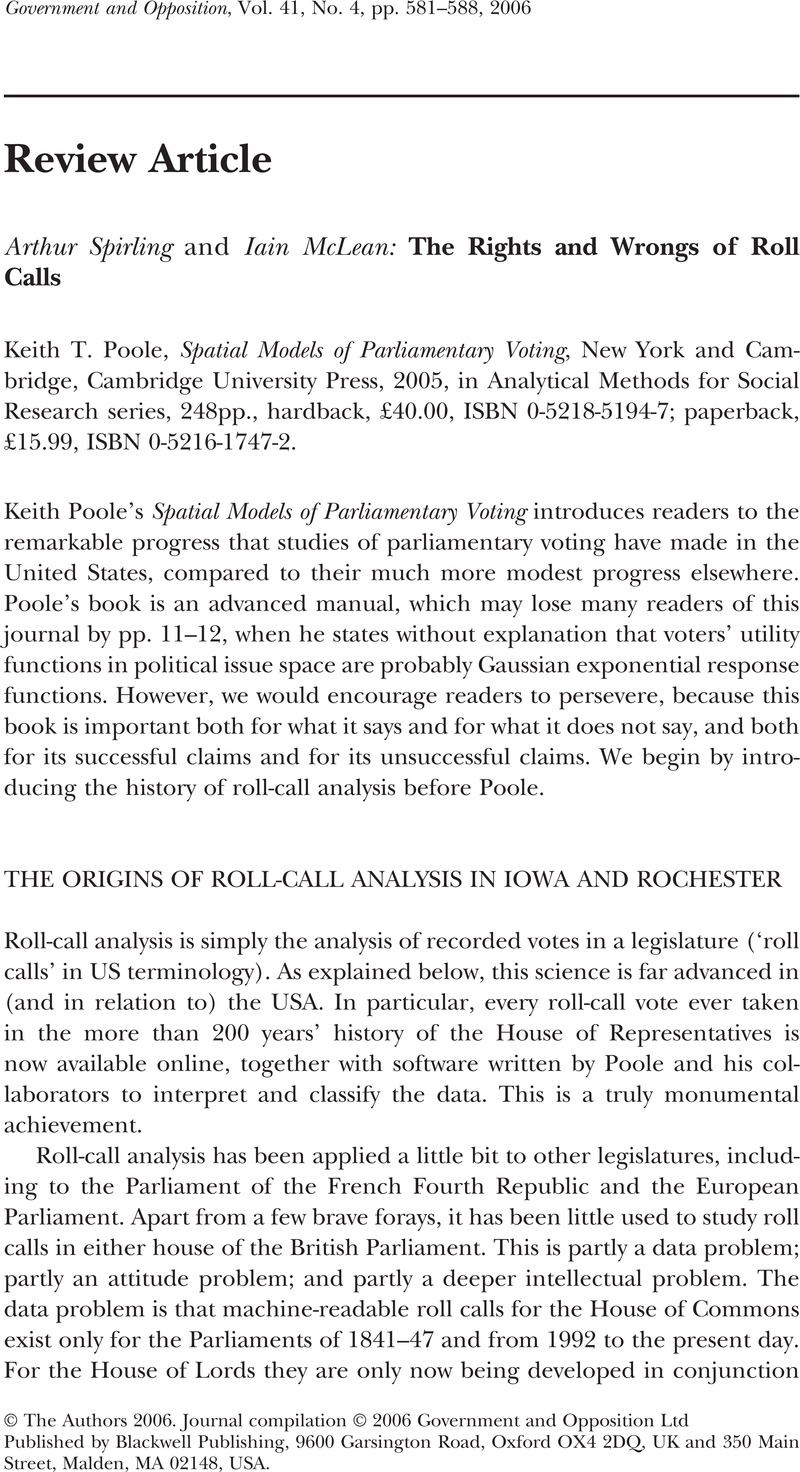Published online by Cambridge University Press: 28 March 2014

1 Allan G. Bogue and Gilbert White, ‘William Osgood Aydelotte, September 1, 1910–January 17, 1996’, in National Academy of Science, Biographical Memoirs73, Washington, DC, National Academy Press, 1998, pp. 40–63. All facts about Aydelotte are either from this source or from personal acquaintance.Google Scholar
2 But see C. Schonhardt-Bailey, ‘The Strategic Use of Ideas: Nationalizing the Interest in the Nineteenth Century’, and I. McLean, ‘Irish Potatoes, Indian Corn and British Politics: Interests, Ideology, Heresthetic and the Repeal of the Corn Laws’, in F. McGillivray, I. McLean, R. Pahre and C. Schonhardt-Bailey, International Trade and Political Institutions: Instituting Trade in the Long Nineteenth Century, Cheltenham, Edward Elgar, 2001, pp. 146–97 and 99–145 respectively; I. McLean, Rational Choice and British Politics, Oxford, Oxford University Press, ch. 2; N. Schofield, Architects of Political Change, New York, Cambridge University Press, 2006. A version with new variables added by McLean and Schonhardt-Bailey is freely downloadable from http://www.nuff.ox.ac.uk/Users/McLean/index.htm.Google Scholar
3 Bogue and White, ‘Aydelotte’, p. 52.Google Scholar
4 K. T. Poole and H. Rosenthal, Congress: A Political-Economic History of Roll-Call Voting, New York, Oxford University Press, 1997, p. viii. The two occasions are the ‘Era of Good Feelings’ in the 1820s, associated with the collapse of the Federalist Party; and the 1850s, when an alignment based on slavery overtook the earlier economic interest-based alignments in the years leading up to the Civil War.Google Scholar
5 Rosenthal, Howard and Voeten, Erik, ‘Analyzing Roll Calls with Perfect Spatial Voting: France 1946–1958’, American Journal of Political Science, 48: 3 (2004), pp. 620–32.CrossRefGoogle Scholar
6 The confusion is partly linguistic. In US English the word ‘parliamentary’ has a broader meaning than in British English. Ever since Jefferson, Americans have used the word to mean ‘pertaining to the procedural rules of any deliberative body’– not merely to Parliament narrowly defined.Google Scholar
7 Poole and Rosenthal, Congress, p. 3.Google Scholar
8 Keith T. Poole, Spatial Models of Parliamentary Voting, New York and Cambridge, Cambridge University Press, 2005, p. 16.Google Scholar
9 Philip Cowley, Revolts and Rebellions: Parliamentary Voting Under Blair, London, Politico's Publishing, 2002.Google Scholar
10 K. T. Poole, ‘Non-Parametric Unfolding of Binary Choice Data’, Political Analysis, 8 (2000), pp. 211–37, quoted at p. 212.Google Scholar
11 W. H. Riker, Liberalism against Populism, San Francisco, W. H. Freeman, 1982; and his The Art of Political Manipulation, New Haven, CT, Yale University Press, 1986; McLean, I., ‘William H Riker and the Invention of Heresthetic(s)’, British Journal of Political Science, 32 (2002), pp. 535–58.CrossRefGoogle Scholar
12 N. Gash, Sir Robert Peel, London, Longman, 1972, p. 447.Google Scholar